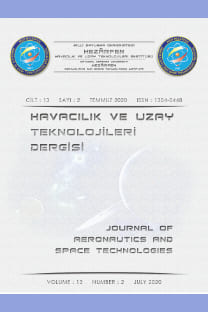A questionnaire based method for CMMI level 2 maturity assessment
CMMI 2.düzey olgunluk değerlendirmesi için anket tabanlı bir yöntem
___
- [1] Bieman J., “Editorial: The Illusive Nature of Quality”, Software Quality Journal, Vol: 11, Number: 1, Pages: 7-8, 2003
- [2] Dromey R. G., “Software Quality, Prevention versus Cure?”, Software Quality Journal, Vol: 11, Number: 3, Pages: 197-261, 2003.
- [3] Pino F., Garcia F., and Piattini M., “Software process improvement in small and medium software enterprises: a systematic review”, Software Quality Journal, Vol: 16, Number: 2, Pages: 237-261, 2008.
- [4] Herbsleb J., Carleton A., Rozum J., Siegel J., Zubrow D., “Benefits of CMM-Based Software Process Improvement: Initial Results, Technical Report CMU/SEI-94-TR-14”, Software Engineering Institute, Pittsburgh, 1994.
- [5] Goldenson D.R., Herbsleb J.D., “After the Appraisal: A Systematic Survey of Process Improvement, its Benefits, and Factors that Influence Success”, Technical Report CMU/SEI-95-TR-009, Carnegie Mellon University Software Engineering Institute, 1995.
- [6] Staples M., Niazi M., Jeffery R., Abrahams A., Byatt P., Murphy R., “An exploratory study of why organizations do not adopt CMMI”, J. System Software, Elsevier Science Inc., Vol: 80, Number: 6, Pages: 883-895, New York, NY, USA, 2007.
- [7] Hyde W., “Intangible benefits of CMM-based software process improvement”, Software Process Improvement and Practice, Vol: 9, Pages: 217-228, 2004.
- [8] Jung H. W., Hunter R., Goldenson D., El- Emam K., “Findings from Phase 2 of the SPICE Trials”, Software Process Improvement and Practice, Vol: 6, Number: 4, Pages: 205-242, 2002.
- [9] Mary Beth Chrissis, Mike Konrad, Sandy Shrum: “CMMI: Guidelines for Process Integration and Product Improvement, 2nd Edition”, Addison Wesley, 2007.
- [10] Yoo C., Yoon J., Lee B., Lee C., Lee J., Hyun S., Wu C., “An Integrated Model of ISO 9001: 2000 and CMMI for ISO Registered Organizations”, APSEC ’04: Proceedings of the 11th Asia-Pacific Software Engineering Conference, ISBN: 0-7695- 2245-9, IEEE Computer Society, Washington, DC, USA, 2004.
- [11] Sun-Jen Huang, Wen-Ming Han: “Selection priority of process areas based on CMMI continuous representation”, Inf. Manage., Elsevier Science Publishers B. V., Vol: 43, Number: 3, Pages: 297-307, Amsterdam, The Netherlands, 2006
- [12] Yucalar, F., “Evaluation of companies which are being in the software sector has an understanding process focused quality management with the CMMI staged model (Master Thesis)”, Maltepe University, Istanbul, Turkey, 2006.
- [13] Ekdahl F., Larsson S., Experience Report: “Using Internal CMMI Appraisals to Institutionalize Software Development Performance Improvement”, EUROMICRO ’06: Proceedings of the 32nd EUROMICRO Conference on Software Engineering and Advanced Applications, ISBN: 0-7695-2594-6, IEEE Computer Society, Washington, DC, USA, 2006.
- [14] Gray E., Sampaio A., and Benediktsson O., “An Incremental Approach to Software Process Assessment and Improvement”, Software Quality Journal, Vol: 13, Number: 1, Pages: 7-16, 2005
- ISSN: 1304-0448
- Yayın Aralığı: 1
- Başlangıç: 2003
- Yayıncı: Dr. Öğr. Üyesi Fatma Kutlu Gündoğdu
Alüminyum levhaların yüksek hızlı çarpma davranışları için ampirik bir model
Representation method effects on vibrational genetic algorithm in 2-D airfoil design
Hava aracı kablolarında çapraz karışma ölçümleri ve kablo ayrım kuralları
Fatih ÜSTÜNER, Nevzat TARIM, Gülay İYİBAKANLAR
Serdar DALKILIÇ, A. Akile TANATMIŞ
A questionnaire based method for CMMI level 2 maturity assessment
